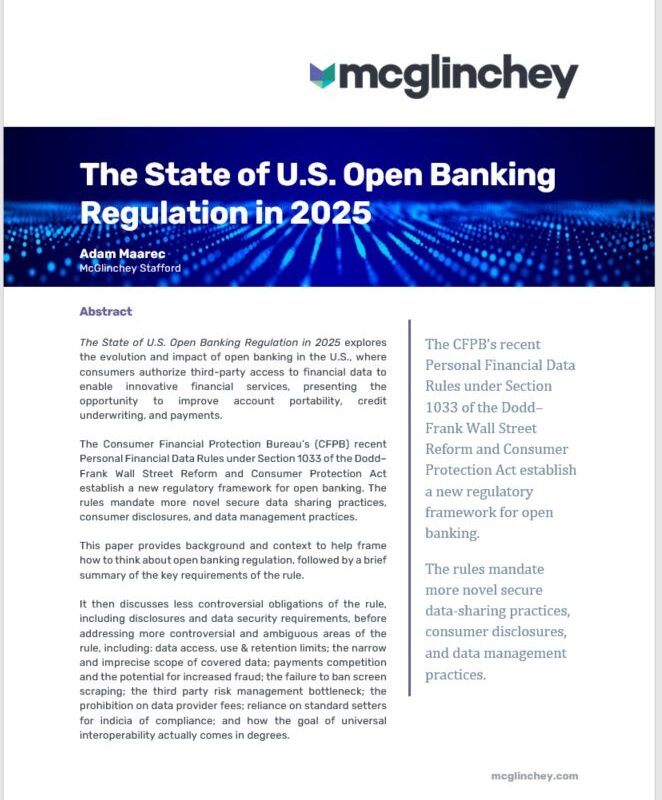The State of U.S. Open Banking Regulation

The State of U.S. Open Banking Regulation in 2025
The Consumer Financial Protection Bureau (CFPB) recently created a new regulatory framework for Personal Financial Data Rights under Section 1033 of the Dodd-Frank Act, enabling access to consumers’ most sensitive financial data.
The rules mandate more novel secure data-sharing practices, consumer disclosures, and data management practices.
“The State of U.S. Open Banking Regulation in 2025” explores the evolution and impact of open banking in the U.S., where consumers authorize third-party access to financial data to enable innovative financial services, presenting the opportunity to improve account portability, credit underwriting, and payments.
This whitepaper by Adam Maarec (Washington, DC) provides background and context to help frame how to think about open banking regulation, followed by a brief summary of the key requirements of the rules. It then discusses less controversial obligations of the rules, including disclosures and data security requirements, before addressing more controversial and ambiguous areas of the rule, including:
- Data access, use, and retention limits
- Narrow and imprecise scope of covered data
- Payments competition and the potential for increased fraud
- The failure to ban screen scraping
- The third-party risk management bottleneck
- The prohibition on data provider fees
- Reliance on standard setters for indicia of compliance
- Challenges in achieving universal interoperability
Please complete the form to download the report.

DOWNLOAD NOW
Complete the form below to download the report.
McGlinchey will use the information you have provided here in accordance with our Privacy Policy. By providing your personal information, you agree that McGlinchey may use it to contact you about our services, promotions, or events that McGlinchey may be offering or hosting. You may always opt-out later if you do not want McGlinchey to contact you. If you do not agree to McGlinchey using your personal information for this purpose, do not complete this form.
